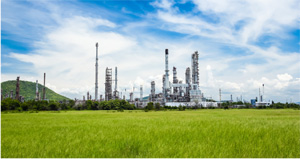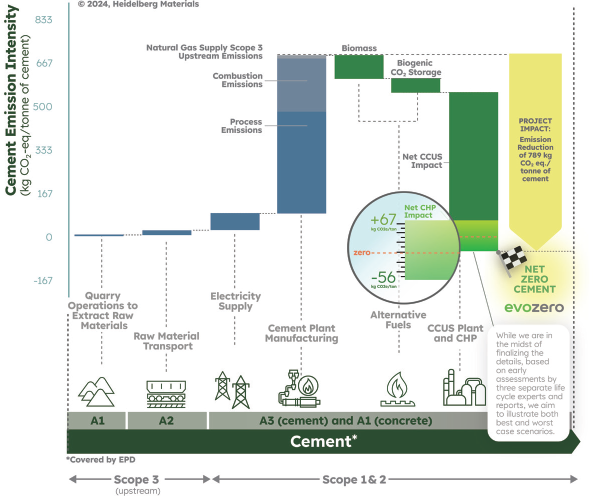September/October 2019
Communities: Industry
Oil and Gas Industry Works to Change Perceptions, Promote Sustainability
 While forms of renewable energy like wind, solar, and biofuels are the fastest growing sources of energy, according to the 2019 BP Energy Outlook, oil and gas still supplies more than 50% of the world’s energy needs—particularly in transportation, chemicals, and manufacturing. That percentage is not expected to change much through 2040, even while the volume of oil and gas demand is expected to increase.
While forms of renewable energy like wind, solar, and biofuels are the fastest growing sources of energy, according to the 2019 BP Energy Outlook, oil and gas still supplies more than 50% of the world’s energy needs—particularly in transportation, chemicals, and manufacturing. That percentage is not expected to change much through 2040, even while the volume of oil and gas demand is expected to increase.
The petroleum industry faces several challenges: the continued need for more energy while combatting the output of carbon emissions and negative public perceptions about the industry. So, how can this be accomplished?
For starters, the industry can evolve by tackling some of its criticisms head-on, according to Society of Petroleum Engineers 2019 President Sami Alnuaim, who says that one of his goals is to work to change the industry’s public image.
“We have to play a role in correcting misconceptions about our work, and I think we are doing that,” Alnuaim says. “Owners and stakeholders in our industry are investing billions in addressing climate change by improving energy efficiency, reducing emissions, and creating and enabling technologies that contribute to lower emissions.”
Many in the oil and gas industry are focused on sustainable development, a term that has come to the forefront of the industry over the last several years. Sustainable development is defined by SPE as managing resources in a way that is conducive to long-term wealth creation and the maintenance of capital. Since there is a direct correlation between human prosperity and energy production, Alnuaim says it’s vital that the industry recognize the interconnectedness of society, the economy, and the environment.
Another organization working for change is IPIECA, formerly the International Petroleum Industry Environmental Conservation Association. IPIECA wants to transform the oil and gas industry so its “operations and products meet society’s environmental and social performance expectations.” The organization has begun collating data from oil and gas companies in areas like methane output, net positive gains, water consumption in operations, availability of water to supply nearby communities, biodiversity, and ecosystems services. Their aim is to define best practices and offer guidance to consumers and those in the industry.
Licensed petroleum engineers, Alnuaim and IPIECA officials agree, have the responsibility of ensuring the safety of not only their fellow workers, but also the public. This includes finding sustainable solutions to energy needs.
Nathan Meehan, P.E., former SPE president and president of Gaffney, Cline & Associates, says petroleum engineers can help ensure the oil and gas industry is part of a “culture of sustainability” by improving in the following areas:
- Minimizing methane emissions;
- Reducing or eliminating flaring;
- Being energy efficient and mindful of conservation;
- Improving wellbore integrity;
- Reducing surface footprint;
- Eliminating oil spills; and
- Optimizing field development and management.
In addition, Alnuaim says that many of the industry’s large companies are already becoming more conscious about their contributions to sustainable development and have created programs to better communicate and collaborate with the communities where they work. Chevron, for example, reports that its goals include a 20–25% reduction in methane emissions intensity and a 25–30% reduction in flaring intensity by 2023. And to promote prosperity in the communities where the company works, Chevron reported in 2018 that it had spent $154 billion on goods and services and more than $1 billion on social investments globally in the past five years.
Organizations like IPIECA, the Oil and Gas Climate Initiative, and the International Association of Oil and Gas Producers are also working to change the industry by collecting data and sharing experiences across the globe.
While much work remains, the industry’s efforts to reduce its environmental and societal impact have already been evident. The World Bank Global Gas Flaring Reduction Partnership reported that global flaring declined by 5% in 2017, even as oil production rose by 0.5%. A World Bank spokesperson said the “data is encouraging, but we will have to wait a few more years to know whether it represents a much-needed turning point.”
In addition, the International Energy Agency’s 2018 Global Energy and CO2 Status Report showed that emission levels in the United States are about the same as 1990 levels, 14% below their peak in 2000 and the largest decline among all countries since 2000.


 Volunteering at NSPE is a great opportunity to grow your professional network and connect with other leaders in the field.
Volunteering at NSPE is a great opportunity to grow your professional network and connect with other leaders in the field. The National Society of Professional Engineers (NSPE) encourages you to explore the resources to cast your vote on election day:
The National Society of Professional Engineers (NSPE) encourages you to explore the resources to cast your vote on election day:


